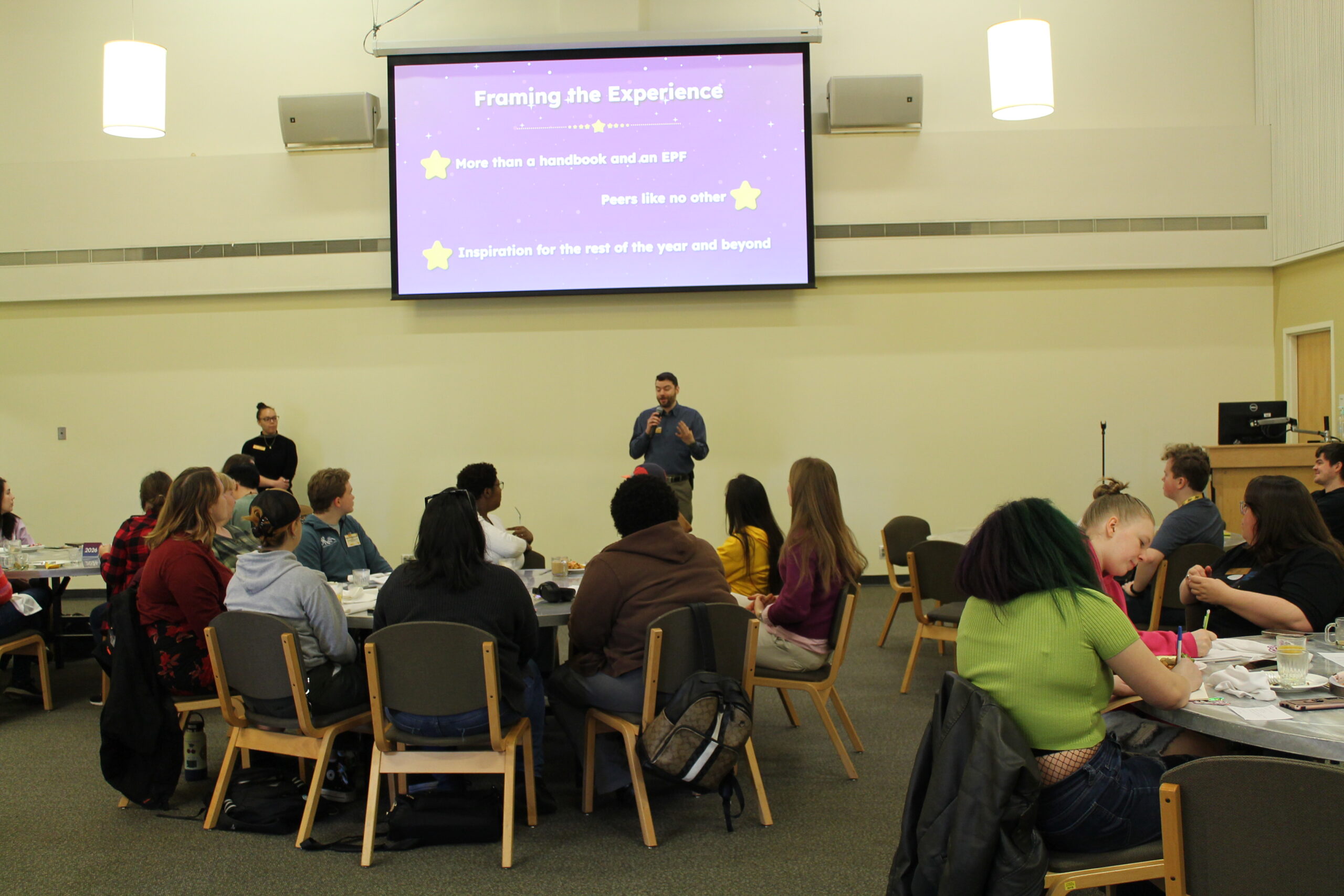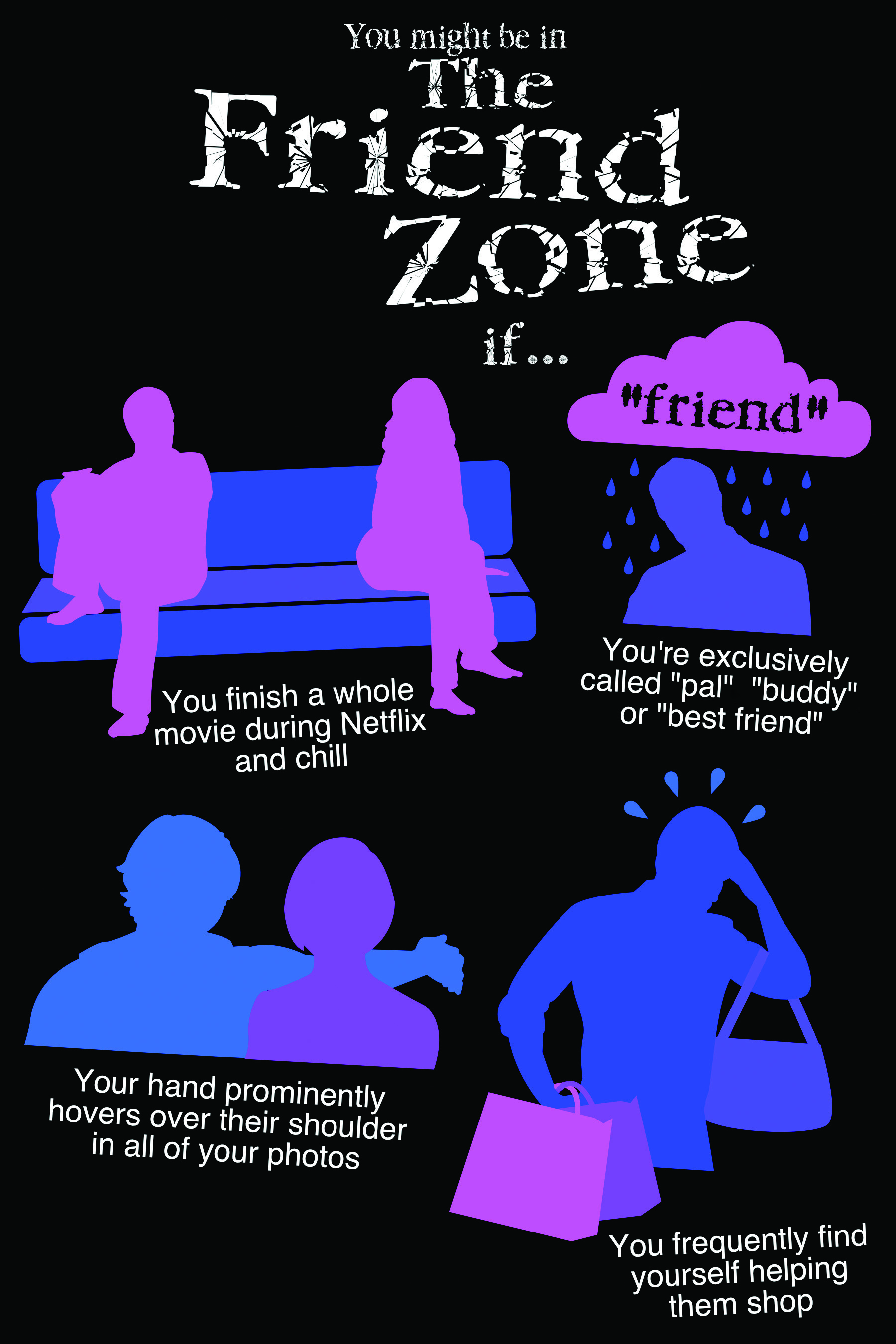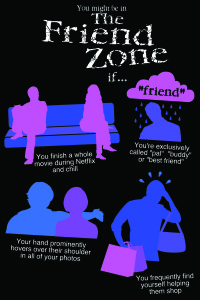Victim shaming, a heavily discussed topic about which there is already heavy discussion, is a huge problem in today’s society. So many vulnerable people are made to feel ashamed for being forced into a situation where they felt uncomfortable.
Our culture needs to stop dismissing victims and needs to start apprehending predators, especially because victims, particularly women, are made to feel that they are responsible for the inappropriate behavior that is exhibited towards them. They are taught that they, in some way, “caused it,” although they most certainly did not.
I want to tell people that it’s okay to say no, it’s okay to confront someone about “creepy” behavior, and it’s okay to take action against it. I want to tell people that in no way, shape, or form are they ever at fault for the actions of others towards themselves.
Nowadays, it is a common occurrence to hear complaints about being in the “Friend Zone” from men and women alike. These complaints are often taken without another thought; it is assumed that it is okay to be angry at what really is the simple rejection of their affections.
This attitude of entitlement to the reciprocation of romantic attraction is so ingrained in the minds of people that when they are in the position of being the “friendzoner” they are made to feel as if they are the problematic one. They are told that they should not have acted one way or another so as to not have “led them on.”
Of course, the rejected person has every right to be sad, upset, or disappointed that their love interest does not feel the same way, but under no circumstances is anger a validated emotion.
I say again, in no way is a girl (or boy) ever at fault or in the wrong for rejecting the advances of another human being.
One of the reasons I want so badly to convey this point is because I recently bore witness to two cases of this, or rather the opposite of this, within the past two weeks here on campus.
In both cases, friends were pursued by a boy and rejected him. In one case, he was persistent, and in the other, he became aggressive. Neither of his reprisals were acceptable, yet both victims felt they should apologize to him, that perhaps they had misjudged him and behaved incorrectly.
Now, the response of their friends and others that I live with was inspiring. They would not allow their friends to feel guilty for their actions, but instead reminded them that it is okay to say no and it is okay to reject someone who is making them feel uncomfortable.
They even supported one of these two in a confrontation with that boy about his behavior, so that he might know what he did wrong and not intimidate any other girls.
Whether or not he will change his behavior is unknown, but what I do know is that an empowering and supportive environment helped my close friends from feeling ashamed for saying “no,” and that there is no need for an “I’m sorry,” to follow it.
If more people acted like that—supportive, understanding and encouraging; perhaps young girls and boys would feel appropriate in being who they are and feel safe in protecting themselves.
As a result, more people would not have to suffer in silence or hide in fear, but would instead be open and communicative with others around them.
All in all, we just need to be there for each other—and hold each other accountable.


















